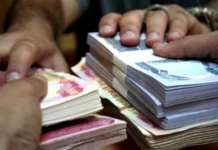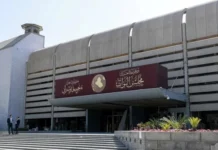Tishwash: A US delegation visits Baghdad to discuss a number of issues. Withdrawal is on the table.
A high-level US delegation is scheduled to visit the Iraqi capital, Baghdad, in the coming days to discuss a range of issues with Iraqi officials.
According to an informed source who spoke to Shafaq News Agency, the delegation will discuss the US withdrawal from its main bases in Iraq and its repercussions, in addition to an economic file and another related to energy.
The US delegation is also scheduled to visit the Kurdistan Region, according to the source, to discuss several issues, including the repercussions of the recent events in Sulaymaniyah.
Relations between the United States and Iraq have been at a diplomatic standstill since Donald Trump took office. Communication and meetings have been limited to the Chargé d’Affaires of the US Embassy in Baghdad, Stephen Fagin, and a single call received by Prime Minister Mohammed Shia al-Sudani from Secretary of State Marco Rubio.
This comes as the first phase of the US-led international coalition’s withdrawal from Iraq has begun, with a US military convoy already departing Ain al-Asad base for Syria last Monday.
The schedule includes the withdrawal of international coalition forces from Ain al-Asad base and Baghdad by the end of September 2025, with a portion of them being transferred to Erbil and Kuwait. Meanwhile, the number of troops will gradually decrease from approximately 2,000 to less than 500 in Erbil. link
Tishwash: US delegation to visit Iraq as troop withdrawal advances
A senior US delegation is due in Baghdad in the coming days for talks on the withdrawal of American forces as well as economic and energy issues, a source told Shafaq News on Saturday.
The group is also scheduled to travel to the Kurdistan Region to address several files, including the recent unrest in al-Sulaymaniyah, the source added.
The visit coincides with the start of the Global Coalition’s drawdown. Earlier this week, a US convoy left Ain al-Asad base for Syria, with full withdrawals from Ain al-Asad and Baghdad planned by the end of September 2025. The American troop presence will then shrink from around 2,000 to fewer than 500, concentrated mostly in Erbil. link
*****************
Tishwash: US Forces in Sudden Withdrawal from Ain al-Asad, Victory Bases in Iraq
US forces began a sudden, phased withdrawal from Ain al-Asad and Victory bases in Iraq on Sunday following an embassy order, a top Iraqi official told Kurdistan24. Some troops have been moved to Erbil. The full evacuation is expected within days.
as of 3:11 am PDT
American military forces have initiated a sudden withdrawal from the major Ain al-Asad and Victory Base Complex (VBC) in Iraq, a high-level source within the Iraqi government told Kurdistan24 exclusively on Sunday.
The withdrawal began this morning following what the source described as an order issued by the American Embassy in Baghdad.
According to the source, the withdrawal is being conducted in phases. A portion of the American soldiers departed from both bases this morning, with a complete evacuation of the two sites expected to be finalized within the next few days.
The source stated that the Ain al-Asad base housed approximately 2,000 American soldiers, while Victory Base Complex (VBC), located within the perimeter of Baghdad International Airport, is occupied by an additional number of soldiers.
It was also indicated by the source that a portion of the military personnel who have withdrawn have been transferred to Erbil. link
*****************
Tishwash: Economist: Raising Iraq’s Credit Rating Is Key to Attracting Investment and Reducing Borrowing Costs
from telegram
Economic expert Ahmed Abd Rabbo stressed that improving Iraq’s credit rating represents a pivotal step toward reducing sovereign loan interest and boosting foreign investor confidence. He noted that most international investments do not flow to a country unless its credit rating is satisfactory and high.
Abd Rabbo explained in an interview with ABC Arabic that raising a country’s credit rating sends a positive signal to global financial institutions and contributes to increased investment. He noted that the Iraqi government, in coordination with the Central Bank, is moving toward reforming the banking system, considering it “the primary interface of the economy.” A strong economy cannot be built without a banking system capable of meeting market and financing needs.
He added that improving the rating is not impossible, but it requires comprehensive practical steps, starting with diversifying sources of income and strengthening non-oil sectors such as agriculture, industry, and services, along with financial reforms that reduce the deficit and control public spending.
He stressed that political and security stability are essential pillars, as international financial institutions assess Iraq’s ability to simultaneously repay and manage risks. This makes progress in combating corruption and enhancing financial transparency crucial factors in improving investor confidence.
Abd Rabbo explained that improving the credit rating has positive repercussions and enhances confidence in the national economy, which contributes to achieving broader monetary and financial stability and consolidates Iraq’s position in the global financial system.





